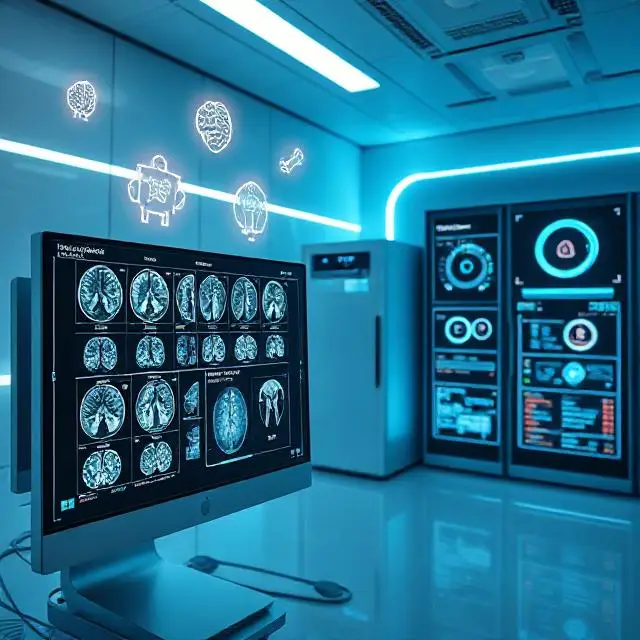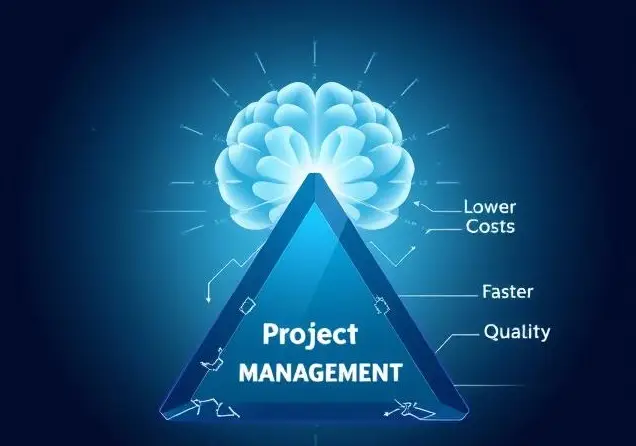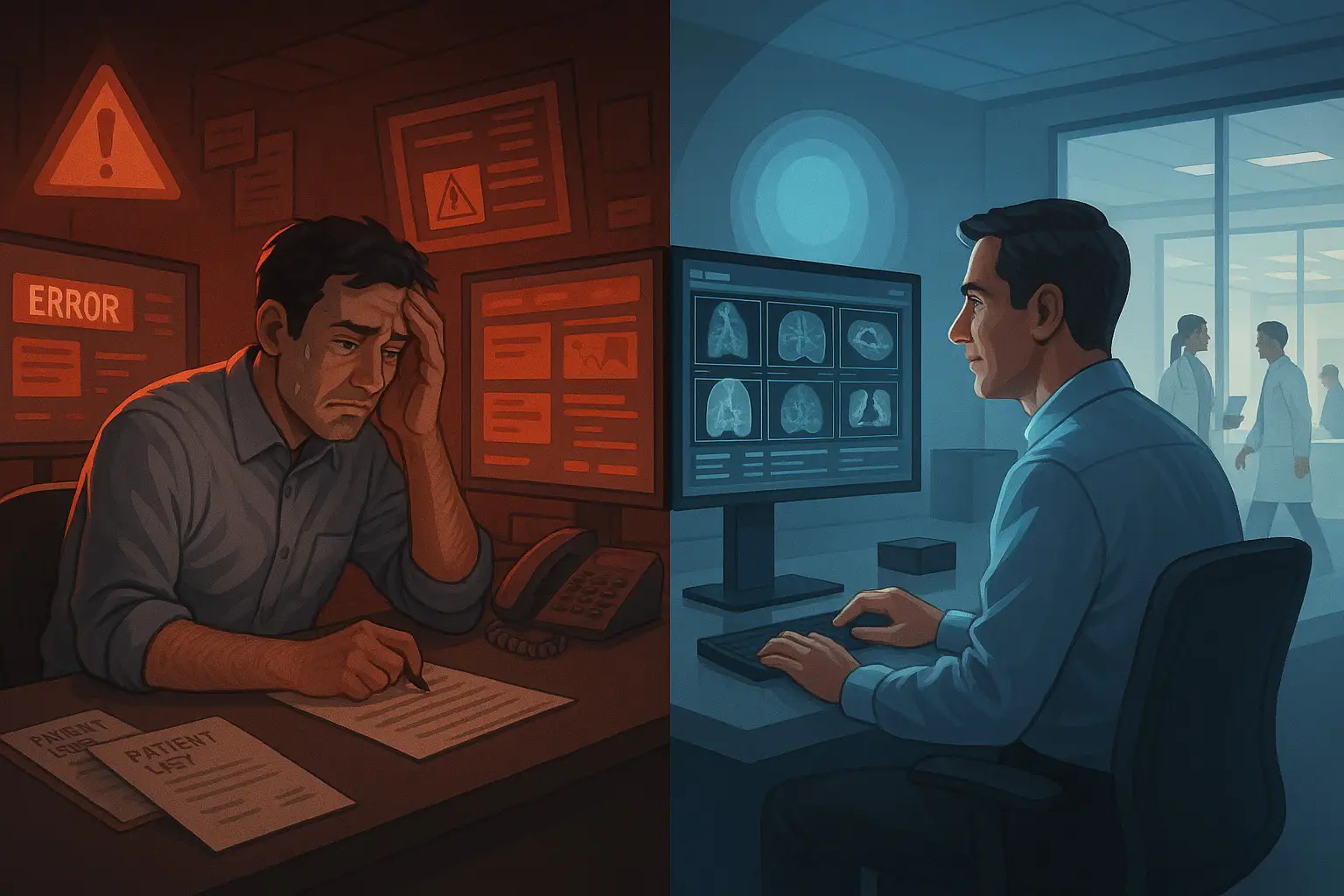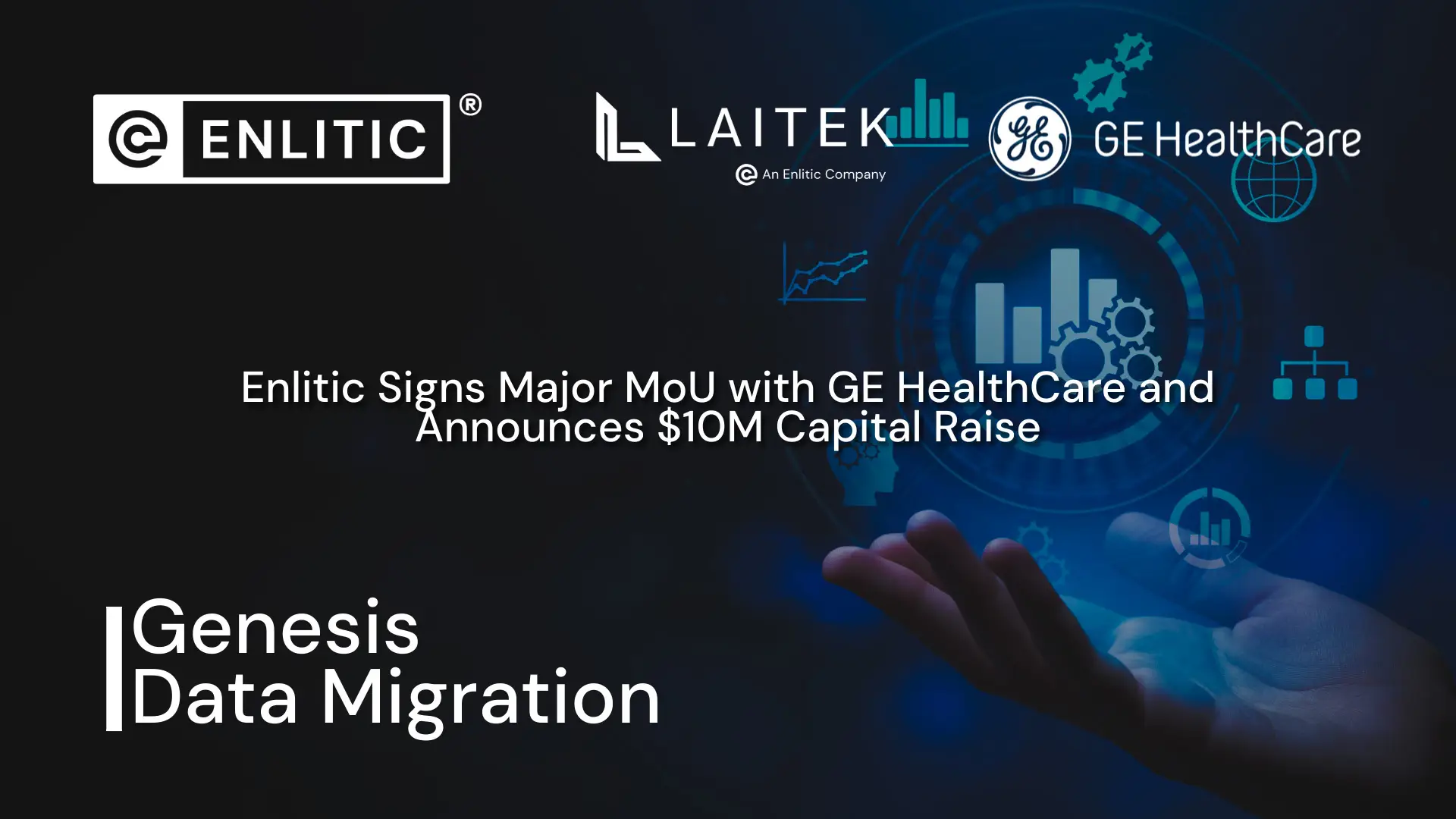Enlitic, a medical startup selected by MIT Technology Review as one of the world’s “50 Smartest Companies,” and Capitol Health Limited (ASX: CAJ, “Capitol”), the fastest-growing radiology service provider in Australia, announced today the world’s first end-to-end transformation of medical diagnostics using deep learning for radiologists and healthcare providers. This is first time globally that real patients will directly benefit from deep learning, at scale and across a whole health care network, through many times faster, more accurate, and less expensive diagnostics, compared to legacy approaches.
Together, the two companies will bring deep learning-supported diagnostics to the Australian and Asian healthcare markets. Capitol Health is also leading a $10M Series B investment round in Enlitic, enabling it to rapidly build on its existing tools (already spanning a wide range of ailments, from lung cancer to bone fractures), and map the entire human body and its afflictions. This is a fundamentally new technology approach for disease diagnosis in the clinic. “Enlitic will forever change the way radiology and all of medicine is practiced,” said Dr. Anthony Upton, Clinical Director at Capitol, “In the urban setting, it will improve accuracy and efficiency to deliver optimum patient outcomes. Globally, it will deliver healthcare to populations that have none.”
Deep learning is an approach to machine learning that is revolutionizing what is possible for computers to achieve. In his 2014 TED Talk, entitled “The wonderful and terrifying implications of computers that can learn,” Enlitic’s founder and CEO Jeremy Howard said, “Deep learning is an algorithm inspired by how the human brain works, and as a result it is an algorithm which has no theoretical limitations. The more data you give it, and the more computation time you give it, the better it becomes.” The video has been viewed by 1.5M people.
Over the past three years, deep learning has been adopted in numerous fields, from enabling Spanish and English speakers to communicate in real-time via automated translation, to improving auto safety and driving efficiency with driverless cars. Enlitic has for the first time tailored deep learning to meet the immense challenges of medical data, partnering with a leading healthcare provider to ensure a broad and immediately positive effect on patient care. As a result, deep learning-augmented physicians save more lives. Unnecessary expensive and dangerous procedures are avoided.
“The vast digitization of medical information — from images to lab tests to patient histories — along with recent breakthroughs in deep learning, has created by far the biggest opportunity that I have seen in more than 20 years in the field,” said Howard. “Enlitic’s new partnership with Capitol allows us to start realizing the vast potential of deep learning in healthcare on a global scale.”
Enlitic’s medical deep learning tools are commercially integrated end-to-end, and will power hundreds of radiologists’ workflow across Capitol Health’s large-scale care network. Enlitic leverages Capitol’s vast image archives across all radiology modalities (Ultrasound, CT, MRI, PET, X-Ray) to accelerate training of deep learning algorithms, and to support diagnosis of thousands of diseases and afflictions. For deep learning, this marks a critical milestone for its ability to have profound human health impact.
“We believe that healthcare systems worldwide will embrace technology that delivers more effective results for patients,” Capitol Managing Director John Conidi said. “This collaboration is a world-first — something ushering in a new age of data-driven medicine — with outstanding clinical outcomes and efficiency benefitting Capitol Health radiologists, referrers, patients and shareholders.”
“I have long championed the ability of exponential technologies like deep learning to bring about radical breakthroughs in medicine for all of humanity,” said Peter H. Diamandis MD, Enlitic Advisor, Co-Founder of Singularity University and Exponential Medicine, and XPRIZE CEO. “Enlitic’s technology is a resource-liberating force and can help bring healthcare access to billions of people, currently underserved.”
Examples of how Enlitic’s technology is used in radiology:
Lung cancer: Kills 80-90 percent of all patients diagnosed in late-stages; this is one of the hardest cancers to detect in medical images. If caught early, survival is nearly 10 times more likely.
- For the first time ever, Enlitic adapted deep learning-supported diagnostics to automatically detect lung cancer nodules in chest CT images 50 percent more accurately than an expert panel of thoracic radiologists. The reduction of false negatives and the ability to detect early-stage nodules saves lives. The simultaneous reduction of false positives leads to fewer unnecessary and often costly biopsies, and less patient anxiety.
- Enlitic benchmarked its performance against the publicly available, NIH-funded Lung Image Database Consortium data set, demonstrating its commitment to transparency.
Bone fractures: Enlitic has also achieved recent breakthroughs in detection of extremity (e.g. wrist) bone fractures, which are very common yet extremely difficult for radiologists to reliably detect. Errors can lead to improper bone healing, resulting in a lifetime of alignment issues.
- These fractures are often represented only by 4×4 pixels in a 4,000×4,000-pixel X-ray image, pushing the limits of computer vision technology.
- In detection of fractures, Enlitic achieved 0.97 AUC (the most common measure of predictive modeling accuracy), more than 3 times better than the 0.85 AUC achieved by leading radiologists and many times better than the 0.71 AUC achieved by traditional computer vision approaches.
- Enlitic was able to support analysis of thousands of image studies in a fraction of the time needed for a human to analyze a single study.
“We have yet to see this level of improvement in radiology since Roentgen’s application of X-rays to medicine,” said Rodney Sappington, PhD, Enlitic’s VP of Radiology, and former executive of several leading radiology companies.
Global impact in broadening access to care
The World Economic Forum estimates it will take hundreds of years to adequately train the requisite number of medical professionals in many places across the globe. Training and healthcare delivery models have to fundamentally change to address this need.
Dr. Ron Shnier, former President of the Australian Diagnostic Imaging Association and Director in Capitol’s Sydney market, commented “the partnership with Enlitic is particularly significant in that it includes a focus on developing economies in Asia, ensuring our approach is one of globally democratizing access to medicine. Together, our two companies will make radiology diagnostics faster, more accurate, and more accessible.”







